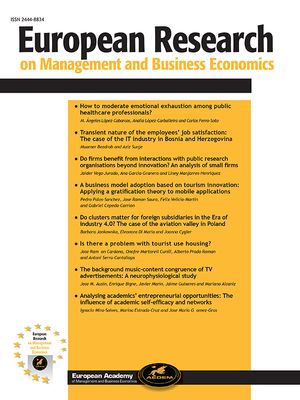Este trabajo aborda la estructura de los consejos de administración más adecuada en términos de responsabilidad social corporativa, así como los factores contextuales que pueden incidir en el comportamiento socialmente responsable de las empresas familiares. Del análisis de 535 empresas no cotizadas españolas surgen tres grupos de empresas en función de las variables relacionadas con la estructura de sus consejos: consejos de dominio familiar, consejos profesionales y consejos inmaduros. Los resultados señalan que las empresas con una estructura de consejos con más potencial para un comportamiento socialmente responsable (consejos profesionales) son las de mayor tamaño, edad, y evolución generacional.
This study focuses on the structure of the board of directors that is considered more suitable in terms of corporate social responsibility, and also on those contextual factors that could influence the socially responsible behavior of family firms. Empirical analysis on 535 non-listed Spanish firms leads to the identification of three clusters in terms of the variables related to boards' structure: family dominated boards, professional boards and immature boards. Results show that the firms that have boards' structure with more potential for a socially responsible behavior (professional boards) are the ones who are bigger, older and with higher generational evolution.





